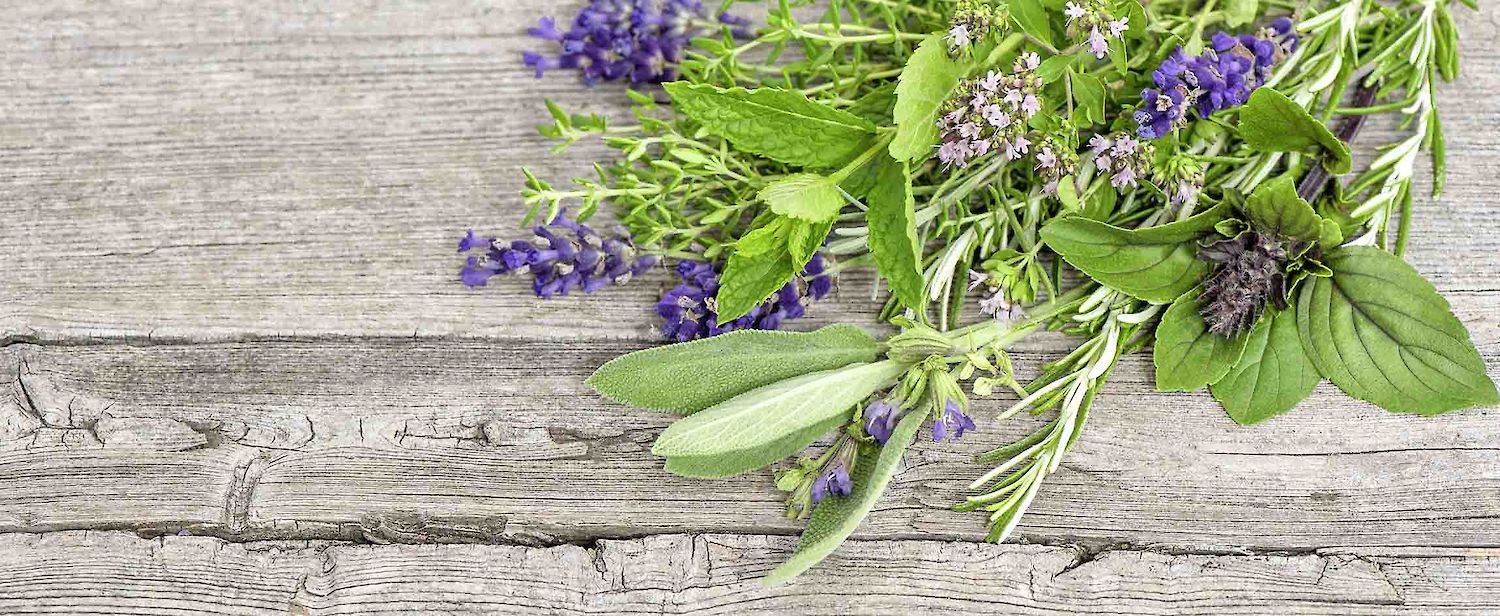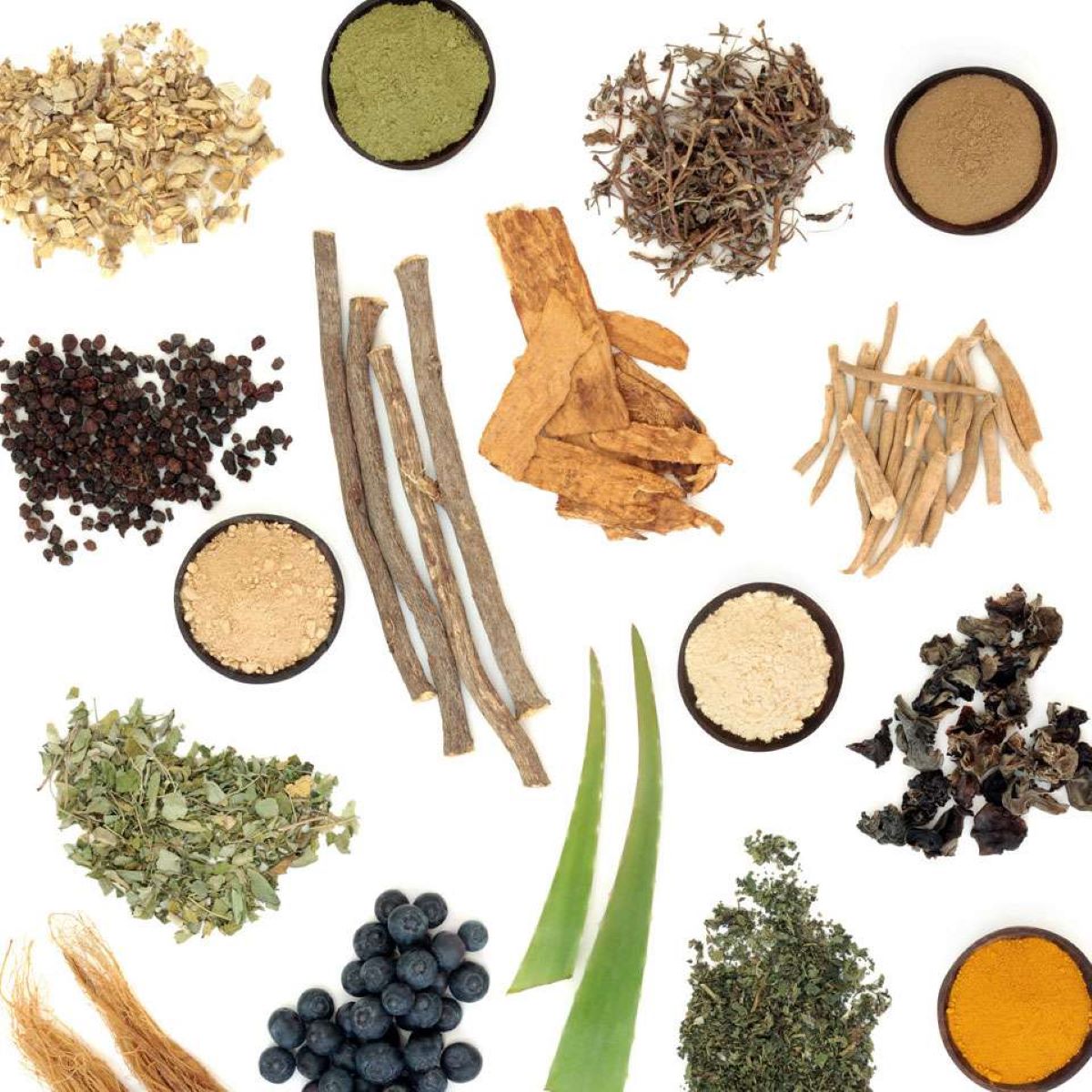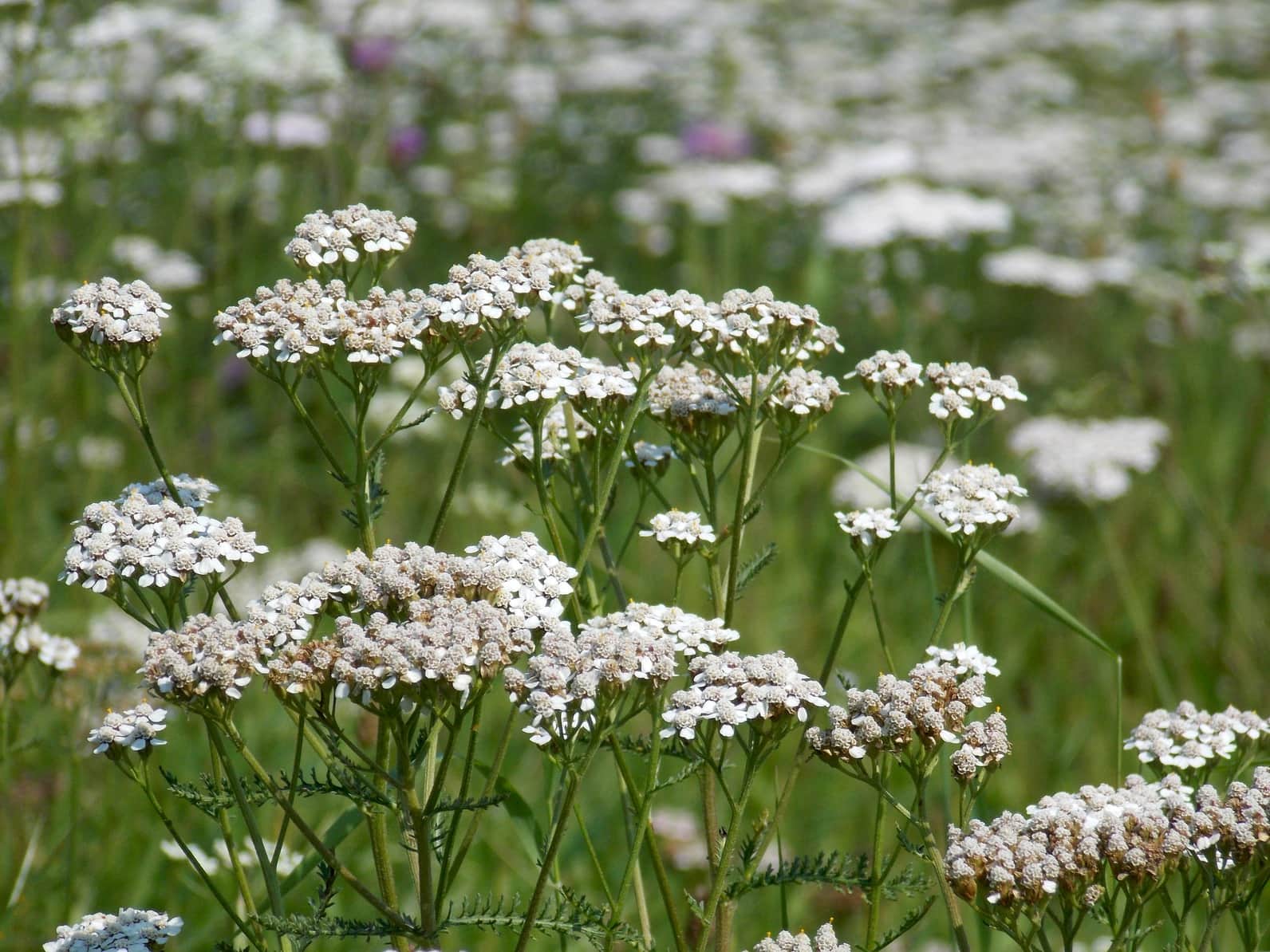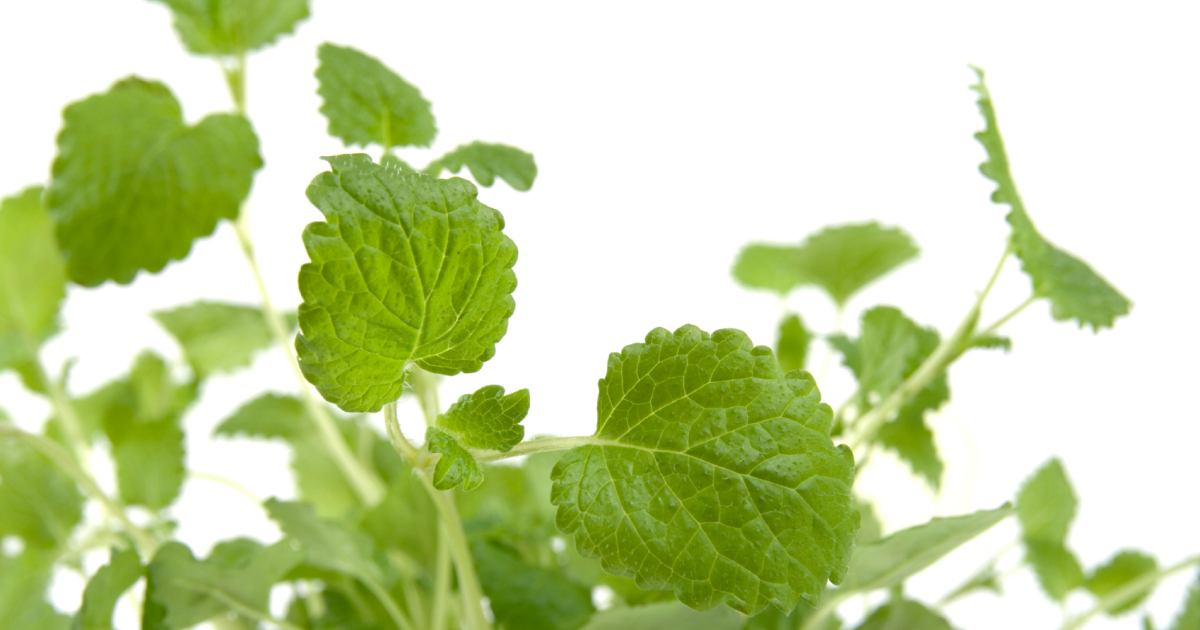Home>Gardening Basics>Getting Started>What Are Bitter Herbs
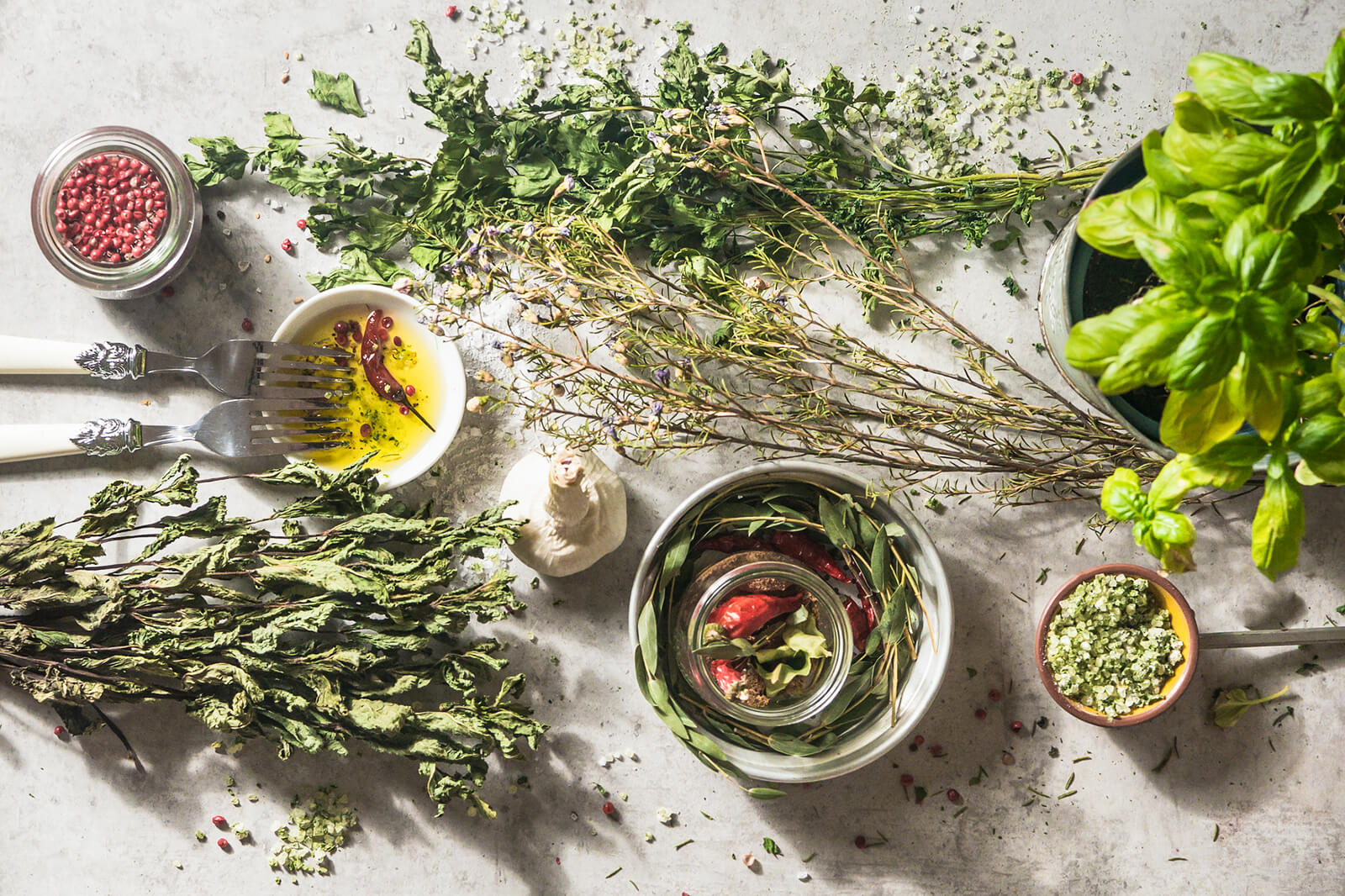

Getting Started
What Are Bitter Herbs
Modified: January 22, 2024
Discover the benefits of bitter herbs and learn how to incorporate them into your diet. Get started on your journey to a healthier lifestyle with our comprehensive guide.
(Many of the links in this article redirect to a specific reviewed product. Your purchase of these products through affiliate links helps to generate commission for Chicagolandgardening.com, at no extra cost. Learn more)
Table of Contents
Introduction
Bitter herbs have long been used in various cultures for their unique flavors and health benefits. These herbs add a distinctive taste to dishes, imparting a sharp and pungent flavor profile that can heighten the overall culinary experience. While some people may shy away from bitter foods, others appreciate the complexity and depth that bitter herbs bring to a meal.
In this article, we will explore the world of bitter herbs, including their definition, common types, health benefits, culinary uses, and precautions. Whether you’re a culinary enthusiast looking to experiment with new flavors or a health-conscious individual wanting to harness the potential benefits of bitter herbs, this guide will provide you with valuable insights.
Bitter herbs are typically derived from plants and are characterized by their bitter taste. They contain compounds known as bitter principles, which stimulate taste receptors on the tongue and trigger a bitter response. While bitterness is often associated with negative connotations, bitter herbs have a rich cultural history and are revered for their unique characteristics.
Bitter herbs are found in various cuisines around the world, from the Mediterranean to Asia and beyond. They are used not only for their distinct taste but also for their potential health benefits. Many bitter herbs have been traditionally used in herbal medicine for their digestive, detoxifying, and anti-inflammatory properties.
In the next sections, we will delve into the different types of bitter herbs, their health benefits, culinary uses, precautions, and how you can incorporate them into your diet. So, let’s embark on this journey to discover the fascinating world of bitter herbs!
Definition of Bitter Herbs
Bitter herbs refer to a category of plants that possess a strong bitter taste, typically derived from their leaves, stems, or roots. These herbs are known for their distinct flavor profile, which can range from mildly bitter to intensely sharp. The bitterness in these herbs is primarily due to the presence of bitter compounds such as alkaloids, terpenoids, and glycosides.
While there is no strict definition of what constitutes a bitter herb, certain plants are commonly recognized as falling into this category. Some popular examples include dandelion, gentian, wormwood, chamomile, and milk thistle. These herbs have been used for centuries in traditional medicine systems, such as Ayurveda, Traditional Chinese Medicine (TCM), and European herbal traditions.
Bitter herbs serve many purposes beyond culinary uses. They have been traditionally valued for their potential health benefits, particularly for digestive health. The bitter taste of these herbs stimulates the taste buds on the tongue, triggering the release of digestive enzymes and promoting healthy digestion. They are believed to help stimulate appetite, enhance nutrient absorption, and support liver and gallbladder function.
It is important to note that while bitter herbs can offer potential health benefits, they may not be suitable for everyone. Individuals with certain medical conditions or those taking medications should consult with a healthcare professional before incorporating these herbs into their routine.
In summary, bitter herbs are a category of plants known for their strong bitter taste, derived from various parts of the plant. They have a long history of use in traditional medicine systems and are valued for their potential benefits in supporting digestion and overall health. Let’s now explore some of the common types of bitter herbs and their specific characteristics.
Common Types of Bitter Herbs
Bitter herbs encompass a wide range of plant species that possess a bitter taste. These herbs are used in various cultures for their distinctive flavors and potential health benefits. Let’s explore some of the common types of bitter herbs:
- Dandelion: Dandelion leaves and roots are widely recognized for their bitter taste. They are rich in vitamins, minerals, and antioxidants. Dandelion is often used to support liver health and promote detoxification.
- Gentian: The root of the gentian plant is incredibly bitter and is commonly used in herbal liqueurs and digestive bitters. It is believed to stimulate appetite, aid digestion, and support liver function.
- Wormwood: Wormwood is known for its intensely bitter taste. It is a key ingredient in herbal liqueurs such as absinthe. Wormwood is believed to have antimicrobial and digestive properties.
- Chamomile: While chamomile is more known for its soothing and calming properties, it also possesses a mild bitterness. Chamomile is commonly used as a tea for relaxation and to support digestive health.
- Milk Thistle: Milk thistle is a bitter herb known for its potential liver-protective properties. It contains a compound called silymarin, which is believed to help regenerate liver cells and protect against toxins.
- Globe Artichoke: The leaves of the globe artichoke plant have a bitter taste. They are often consumed as a vegetable and are known for their potential cholesterol-lowering and liver-supporting effects.
- Bitter Melon: Bitter melon is a tropical fruit that is incredibly bitter in taste. It is commonly used in cuisines throughout Asia and is believed to have various health benefits, including blood sugar regulation.
- Goldenseal: The root of the goldenseal plant is bitter and is highly regarded in traditional medicine for its antimicrobial and immune-supporting properties.
These are just a few examples of the many bitter herbs available. Each herb has its own unique taste, characteristics, and potential health benefits. It is important to explore and experiment with different bitter herbs to find the ones that resonate with your palate and provide the desired effects.
Now that we have learned about some common types of bitter herbs, let’s delve into the potential health benefits they offer.
Health Benefits of Bitter Herbs
Bitter herbs have been valued for their potential health benefits for centuries. While the bitter taste may be an acquired preference for some, it is believed to contribute to their therapeutic properties. Here are some potential health benefits associated with consuming bitter herbs:
- Digestive Health: Bitter herbs are known to stimulate digestion by triggering the release of digestive enzymes and promoting the production of bile, a substance necessary for the breakdown and absorption of fats. This can help improve appetite, relieve indigestion, and support overall digestive health.
- Liver Support: Many bitter herbs, such as dandelion, milk thistle, and chamomile, are traditionally used to support liver function. These herbs are believed to have detoxifying properties and may help protect and regenerate liver cells, promote bile flow, and assist in the elimination of toxins from the body.
- Anti-inflammatory Effects: Some bitter herbs contain compounds with anti-inflammatory properties, such as chamomile and goldenseal. These herbs may help reduce inflammation in the body, which can contribute to various chronic conditions and promote overall well-being.
- Antioxidant Protection: Bitter herbs are often rich in antioxidants, which help protect the body against oxidative stress and free radical damage. Antioxidants can support cardiovascular health, boost the immune system, and reduce the risk of chronic diseases.
- Blood Sugar Regulation: Bitter melon is a bitter herb that has been traditionally used to help regulate blood sugar levels. It contains compounds that may improve insulin sensitivity and support glycemic control.
- Appetite Stimulation: The bitter taste of these herbs can stimulate the appetite and enhance the flavor of dishes. This can be especially beneficial for individuals with poor appetite or digestive issues.
It’s important to note that while bitter herbs may offer potential health benefits, they are not a cure-all solution. It’s always best to consult with a healthcare professional before incorporating these herbs into your routine, especially if you have any underlying medical conditions or are taking medications that may interact with them.
Incorporating bitter herbs into your diet can be done by consuming them raw, steeping them in hot water to make teas, using them as a seasoning in cooking, or incorporating them into herbal supplements. Experimenting with different herbs and finding the right balance for your taste preferences and health goals can help you make the most of these wonderful plants.
Now that we understand the potential health benefits of bitter herbs, let’s explore their culinary uses and how they can elevate the flavors of our favorite dishes.
Culinary Uses of Bitter Herbs
Bitter herbs are not just reserved for herbal remedies; they also play a significant role in culinary traditions around the world. Despite their strong bitter taste, bitter herbs can add depth, complexity, and balance to a wide range of dishes. Here are some popular culinary uses of bitter herbs:
- Salads: Bitter herbs like dandelion greens, arugula, and radicchio are often used in salads to provide a refreshing and slightly bitter taste. They can be combined with sweeter ingredients like fruits or creamy dressings to create a well-rounded flavor profile.
- Herbal Infusions and Teas: Bitter herbs such as chamomile, wormwood, and gentian are commonly infused in hot water to make herbal teas. These teas can be enjoyed on their own or blended with other complementary herbs and spices for a soothing and aromatic beverage.
- Tinctures and Bitters: Bitter herbs are popular ingredients in the creation of tinctures and bitters, which are concentrated herbal extracts used to add flavor and depth to cocktails and other beverages. They can also be taken in small doses as digestive aids before or after meals.
- Cooking: Bitter herbs can be incorporated into a variety of cooked dishes. They can be sautéed with garlic and olive oil as a base for pasta sauces or added to soups and stews for a complex flavor profile. Bitter herbs can also be used as a garnish to add a touch of bitterness to the final dish.
- Baking: Bitter herbs can be used creatively in baking as well. For example, dandelion petals can be infused into sugar syrup and added to cakes or pastries for a subtle bitter-sweet flavor. Bitter herbs can also be used as an ingredient in bread, adding a unique twist to traditional recipes.
- Cocktails and Mocktails: Bitter herbs are often utilized in mixology to create flavorful and complex beverages. They can be muddled or infused into spirits to make bitter liqueurs or used as a garnish to enhance the overall taste and visual appeal of cocktails and mocktails.
When using bitter herbs in cooking, it is important to balance their bitterness with other flavors. Combining them with ingredients such as sweet, sour, or acidic components can help offset their strong taste and create a harmonious flavor profile. The versatility of bitter herbs allows for endless possibilities in the kitchen, allowing you to explore and experiment with different culinary creations.
Now that we have learned about the culinary uses of bitter herbs, let’s discuss some precautions and potential side effects to be aware of when using these herbs.
Precautions and Side Effects of Bitter Herbs
While bitter herbs can offer potential health benefits, it is important to exercise caution and be aware of any potential side effects or precautions associated with their use. Here are some considerations to keep in mind:
- Allergies: Some individuals may have allergies or sensitivities to certain bitter herbs. If you have known allergies to plants or have experienced allergic reactions in the past, it is advisable to avoid or consult with a healthcare professional before consuming bitter herbs.
- Interactions with Medications: Bitter herbs may interact with certain medications, including blood thinners, antacids, and medications for high blood pressure or diabetes. It is important to consult with a healthcare provider if you are taking any medications to ensure there are no interactions.
- Pregnancy and Breastfeeding: The use of bitter herbs during pregnancy and breastfeeding should be approached with caution. While some herbs are considered safe in moderation, others may have potential risks. It is advisable to consult with a healthcare professional before using bitter herbs during these periods.
- Gastrointestinal Upset: Bitter herbs can sometimes cause gastrointestinal upset, such as stomach discomfort, gas, or diarrhea, especially when consumed in large quantities or by individuals with sensitive digestive systems. It is best to start with small amounts and observe how your body reacts before increasing the dosage.
- Individual Sensitivity: Each person’s tolerance and sensitivity to bitter herbs can vary. Some individuals may find the bitterness overpowering or unpleasant, while others may enjoy and benefit from it. It is important to listen to your body and adjust your consumption accordingly.
- Quality and Source: Ensure that you obtain bitter herbs from reputable sources that follow good manufacturing practices. This helps ensure the purity and quality of the herbs, reducing the risk of contamination or adulteration.
As with any dietary or herbal supplement, it is always wise to consult with a healthcare professional before incorporating bitter herbs into your routine, especially if you have any underlying health conditions or are currently taking medications. They can provide personalized advice and guidance based on your specific needs and circumstances.
By exercising caution, being aware of potential interactions or sensitivities, and using bitter herbs in moderation, you can safely harness the potential benefits they offer. Let’s now explore some practical ways to incorporate bitter herbs into your diet.
How to Incorporate Bitter Herbs into Your Diet
Incorporating bitter herbs into your diet can be an exciting and flavorful way to enjoy their unique taste and potential health benefits. Here are some practical tips on how to include bitter herbs in your everyday meals:
- Add them to salads: Include bitter greens like dandelion, arugula, or radicchio in your salads. Their bitterness pairs well with sweet or tangy dressings and can add a refreshing element to your plate.
- Brew herbal teas: Make use of bitter herbs like chamomile, gentian, or wormwood to brew herbal teas. Enjoy them as a warm beverage or even as a chilled infusion for a refreshing and soothing experience.
- Use them in cooking: Incorporate bitter herbs into your cooking by sautéing them with garlic and olive oil as a base for pasta sauces, adding them to soups and stews for added flavor complexity, or using them as a topping or garnish to enhance the overall taste of your dishes.
- Blend them into smoothies: Add a small amount of bitter herbs like dandelion greens or bitter melon to your smoothies. The bitterness can be balanced with sweeter fruits and vegetables for a well-rounded flavor profile, and the added nutrients and potential health benefits are an extra bonus.
- Experiment with herbal liqueurs: Bitter herbs are often used as ingredients in herbal liqueurs or digestif spirits. Consider exploring recipes that involve infusing bitter herbs in alcohol to create unique and flavorful beverages.
- Consider herbal supplements: If you find it challenging to incorporate bitter herbs into your diet through food and beverages, herbal supplements are another option. They offer a convenient and concentrated way to benefit from the potential health properties of bitter herbs.
Remember to start with smaller quantities and gradually increase the amount of bitter herbs in your dishes to allow your palate to adjust to the bitterness. This can help you develop a taste for them and fully appreciate their flavor profile.
Lastly, have fun exploring different combinations and recipes. Don’t be afraid to get creative in the kitchen and experiment with different herbs, spices, and ingredients to find the perfect balance that suits your taste preferences.
Now that we have explored various ways to incorporate bitter herbs into your diet, let’s briefly recap what we have learned throughout this article.
Conclusion
Bitter herbs offer a world of flavors, health benefits, and culinary possibilities. With their distinctive taste and potential therapeutic properties, these herbs have been cherished by various cultures for centuries.
In this article, we have defined bitter herbs as plants characterized by a bitter taste, stemming from compounds such as alkaloids and glycosides. We have explored common types of bitter herbs, including dandelion, gentian, wormwood, chamomile, and many others, each with its own unique properties and potential health benefits.
We have also highlighted the health benefits of bitter herbs, including their effects on digestion, liver support, anti-inflammatory properties, antioxidant protection, blood sugar regulation, and appetite stimulation. However, it is essential to exercise caution, as bitter herbs may have potential side effects, interact with medications, or be unsuitable for individuals with specific health conditions.
On the culinary front, we have discovered various ways to incorporate bitter herbs into our diet, whether it’s through salads, herbal teas, cooking, smoothies, or even experimenting with herbal liqueurs. By striking a balance between bitterness and other flavors, we can create delightful dishes that tantalize our taste buds.
Ultimately, the exploration of bitter herbs allows us to diversify our palates, enhance our culinary endeavors, and potentially reap the benefits of their unique taste and potential health properties. Whether you’re seeking new flavors, culinary adventures, or natural remedies, bitter herbs provide a fascinating realm to explore.
So why not embark on a culinary journey and embrace the bitter side of herbs? Incorporate them into your meals, experiment with different combinations, and savor the complex flavors they offer. Embrace the bitterness, and you may discover a whole new dimension of taste and well-being.
